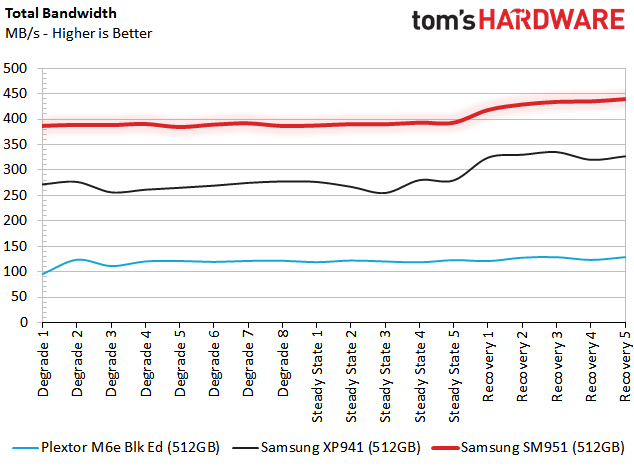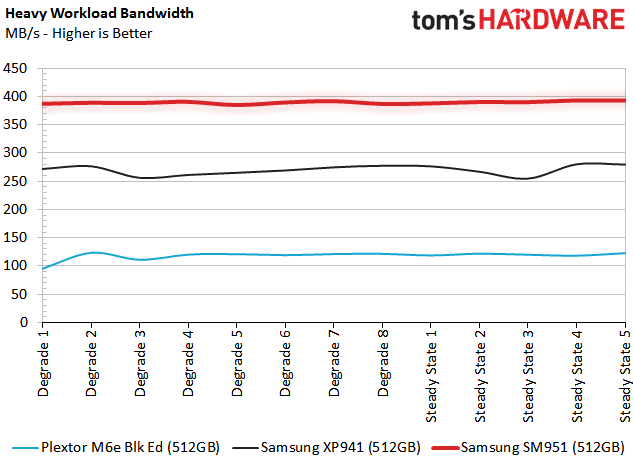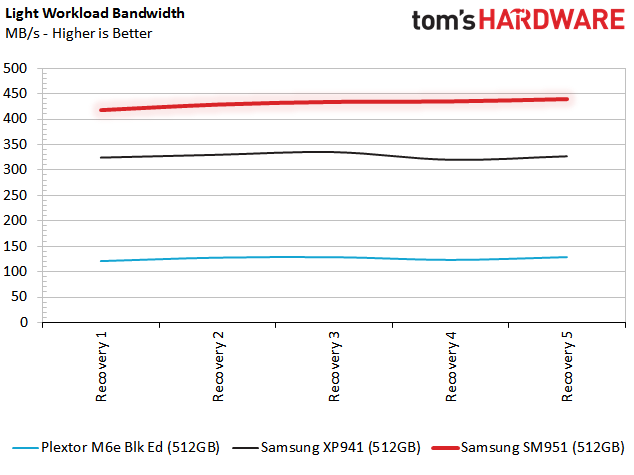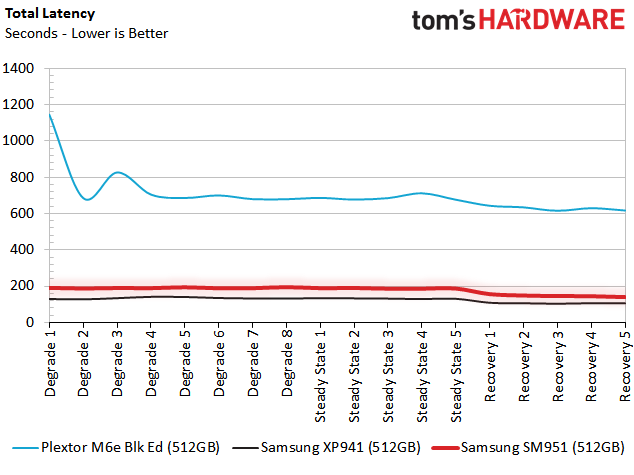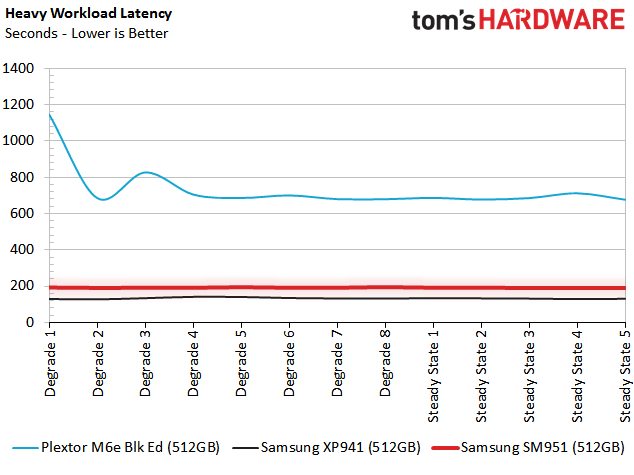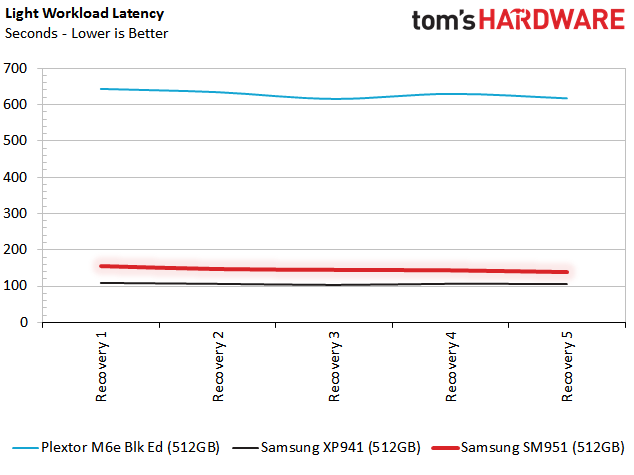Samsung SM951 PCIe M.2 512GB SSD Review
Samsung introduced the SM951 last July during its annual SSD Global Summit in South Korea. Today we're running the drive through our benchmark suite to see if it lives up to the hype.
Why you can trust Tom's Hardware
PCMark 8 Advanced Workload Performance
Futuremark created what we consider to be the best SSD benchmark to date. It shows both heavy and light use over time. The advanced disk tests run from a command line interface, preconditioning the drives before simulating heavy workloads. After the steady state heavy workload metrics finish, five-minute intervals fit between each test, allowing the device under test to recover through background activity with garbage collection, TRIM and wear leveling. This simulates typical consumer workloads that we experience everyday.
Throughput Tests
The three drives on our chart make analysis easy, since performance varies by a wide margin.
Even under heavy workloads, the SM951 512GB is significantly faster than than the other two PCIe-based SSDs we benchmarked.
For most users, the light workload tests better resemble real-world conditions experienced on a daily basis. What surprises us is the large difference between the highest-performing Samsung SM951 and Plextor's last-place M6e Black Edition 512GB.
Latency Tests
Low latency is what makes your computer feel responsive. This is why systems equipped with SSDs are so much faster than those with mechanical disks. Hard drives are bottlenecked by heads and platters moving around, while SSDs can jump to the next transaction without that wait.
This is the first chart in our review where Samsung's latest is beaten by another SSD. The SM951 delivers higher throughput, but at the same time exposes us to higher latency.
The difference between the XP941 and SM951 is so small that it's almost negligible. Both Samsung SSDs deliver lower latencies than a majority of SATA-based drives. Unfortunately, Plextor's M6e Black Edition lands well above the latency levels we expect from a premium SSD in 2015.
Get Tom's Hardware's best news and in-depth reviews, straight to your inbox.
Current page: PCMark 8 Advanced Workload Performance
Prev Page PCMark 8 Real-World Software Performance Next Page Notebook Battery Life
Chris Ramseyer was a senior contributing editor for Tom's Hardware. He tested and reviewed consumer storage.
-
blackmagnum This is an awesome upgrade for some Macbook Air/Pro users, but just wait until Intel shows their product... and will there be any hardware compatibility issues with DIY upgrades?Reply -
Sakkura I'm disappointed the promised NVMe support did not materialize. But I guess Samsung is saving that for later retail products. Can't argue with the performance though, this is by far the fastest consumer SSD around.Reply -
tom10167 I wish they'd put an 840 or 850 pro in the comparison just to give us a better sense of scale. This drive is incredible, though, and $550 for a 512GB cutting edge drive is not terrible!Reply -
mapesdhs The Power Restricted Performance graph is stupid. Please stopping usingReply
graphs with origins that don't start at zero - the visual graphic impact is
totally meaningless.
Ian.
-
jeffunit You might want to fix the labels of your graphs. Latency in seconds? One chart shows a write speed of about 80 gigabytes per second.Reply -
liquidpower I also wished they put a 850 pro in the charts to see the jump from the fastest sata to the PCIe-based M.2Reply
